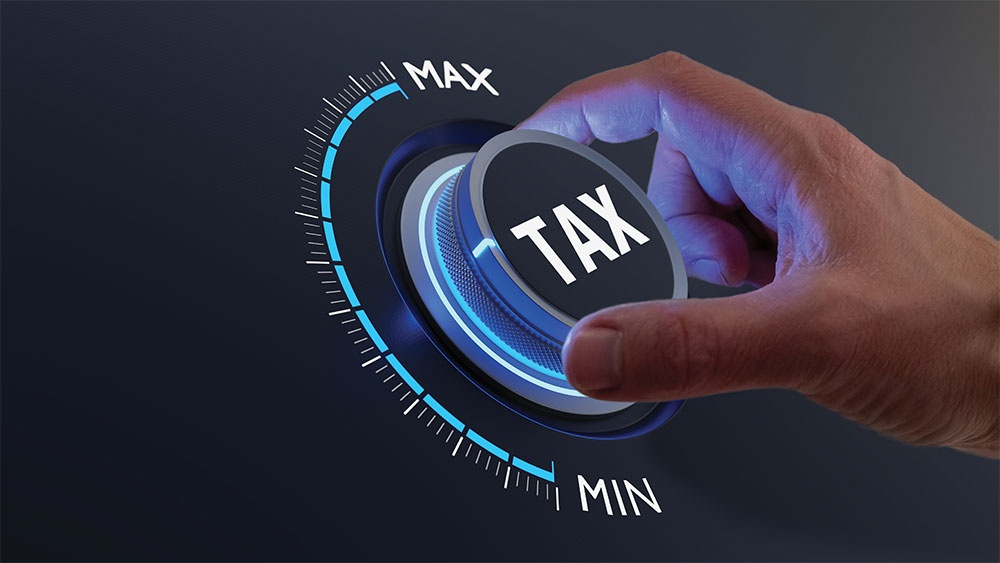Beverage businesses baulk at tax rise plans
 |
| Relevant enterprises have varying ideas as to how excise tax should be utilised, Photo: Shutterstock |
The Ministry of Finance’s (MoF) fresh draft report on the proposal to develop a special consumption tax (SCT) said the rate could be upped by 10 per cent, with the aim to protecting people’s health.
Dr. Nguyen Dinh Cung, former director of the Central Institute for Economic Management, said that today is the most difficult time for Vietnamese businesses in decades. “The beverage industry was strongly affected by the COVID-19 pandemic, while external influence has been reduced due to the decrease in demand and rise in inflation,” Cung said, adding that the industry is also still trying to get to grips with a 2019 decree that set huge fines for drink-driving.
Cung said that in such a context, the government aims is to promote, support, and encourage an increase in demand as well as effective use of revenues.
Meanwhile, Dau Anh Tuan, vice secretary-general of the Vietnam Chamber of Commerce and Industry, said that many restaurants have complained that their revenues are seeing a 50-60 per cent reduction on-year. “The plan to raise the SCT is not suitable at this time as businesses are suffering from many difficulties,” said Tuan.
According to the General Statistics Office, the country’s six-month economic growth is 3.72 per cent on-year, far lower than the 6.42 per cent rise in the first half of the previous year. The industrial sector only witnessed a 0.44 per cent increase over the same period last year, which is the lowest increase for over a decade. A 15 per cent drop in beer production was reported for the first half of 2023.
In an attempt to ease the pressure on businesses, in April the government released Decree No.12/2023/ND-CP on extension of VAT, corporate income tax, personal income tax, and land rental fees applicable for the 2023 tax year.
Thus, industry insiders are concerned that if the SCT takes effect anytime soon, it will go against the government’s recent efforts. “Increasing tax revenues does not raising budget revenues. Vietnam should consider when to change tax rates and tax calculation methods carefully,” said Vo Tri Thanh, director of the Institute for Brand and Competitiveness.
Thanh explained that traditionally, there are three main methods used: relative tax, absolute tax, and hybrid tax. However, there have not been many in-depth studies on the suitability of rates and methods of excise tax on alcohol in Vietnam.
Nguyen Van Phung, former director of Tax Administration of Large Enterprises under the MoF’s General Department of Taxation, said that if the tax calculation method is changed without a thorough impact assessment, it will affect the production and business ability of Vietnamese enterprises, and will indirectly greatly affect state budget revenues as well as the budget balance of localities.
“The choice of tax calculation method is the choice of each country and territory so that it is suitable for their socioeconomic conditions. Therefore, in the current situation of Vietnam, this is not the right time to apply a mixed method or the absolute method, even in terms of state budget revenue and costs,” Phung said.
According to the Vietnam Beer-Alcohol-Beverage Association, the beer industry has made a significant budget contribution. Beer and alcohol businesses contribute about $2.6 billion per year to the budget, meeting domestic consumption needs and creating thousands of jobs.
| Bennett Neo - General director Saigon Beer Alcohol Beverage Corporation
Given the challenges posed by post-pandemic recovery, lower than expected economic growth, and increase in input costs, we recommended maintaining the current SCT rate for beer and alcoholic products for at least 3-5 years. Secondly, Vietnam should continue to maintain the relative taxation method for the SCT and adjust the relative tax rates according to a suitable roadmap based on the socioeconomic situation, at least for the next 10 years. The relative tax method regulating consumer demand based on product prices is therefore more effective in resource allocation and redistributing income for individuals with high incomes. The current method is also demonstrating its effectiveness in adjusting inflation to stabilise consumer prices for alcoholic beverages without increasing state management costs. Furthermore, applying an absolute or hybrid tax method will directly impact the selling price of products, which may create great pressure on low-priced popular beer products, affecting the production and competitiveness of domestic Vietnamese-branded beer enterprises and local brands. Lastly, the choice of tax calculation method is the decision of each country, tailored to the economic and social conditions of that country, to ensure both the integration trend and to be based on the advantages and benefits of the nation itself. Thieu Hong Nhung - CFO, Carlsberg Vietnam
If the hybrid tax method is applied to beer and wine, the SCT on ordinary products will increase but that on high-end products will go down. Lower prices for imported and premium beer and wine serve the interests of few high-income producers, importers, and consumers. Meanwhile, the price of ordinary beer and wine will be pushed far higher than the price of spontaneously brewed products without labels. When the price of premium beer decreases and that of ordinary beer increases, a segment of consumers drinking ordinary beer will switch to premium or imported ones, or spontaneously brewed products. This will get more serious if the hybrid tax method is applied. In advanced countries, this tax method can cause the price of beer and wine with the same alcohol content or the same number of litres consumed to bear the same tax amounts because of the same effect on the health of consumers. But in middle- and low-income nations like Vietnam, hybrid tax will popularise unorthodox production and consumption of alcohol, which will negatively affect health and cause loss of budget revenue. Therefore, we need to better control unofficial alcohol production, promote education on the benefits of official alcohol as used in affordable quantities, as well as the harmful effects of alcohol abuse. The change in SCT calculation method proposed by some manufacturers and importers of high-grade beer and alcohol is not really suitable for the purpose of protecting the health of the majority of people with lower incomes. Nguyen Thanh Phuc - Government and public affairs director HEINEKEN Vietnam
We urge the MoF not to increase SCT on beer in the relative tax method, and replace it by studying and applying the hybrid SCT calculation method for beer. The adjustment of excise tax according to the relative tax calculation method is not an effective measure to reduce the consumption of beer and alcoholic beverages, as well as inappropriate in the current economic context. According to the current relative calculation method, the SCT rate was adjusted five times in 2010-2018, from 45 to 65 per cent. The consumption of alcoholic beverages in Vietnam has soared, but some of them are spontaneously brewed products without labels, registration, or tax payments incurred. Moreover, the MoF report states that barley drinks are similar to beer due to the same ingredients, process, appearance, and taste as beer, so SCT should be levied. This is unreasonable because these same factors are not the legal basis for imposing SCT and the purpose of the tax is to tighten or discourage the consumption of products that are harmful to health, including alcohol. Barley drinks are non-alcoholic and no scientific studies have reported that barley drinks are bad for health. Furthermore, barley drinks with similar taste to beer can contribute to changing consumer behaviour towards non-alcoholic items, reducing the harmful effects of alcohol abuse. |
What the stars mean:
★ Poor ★ ★ Promising ★★★ Good ★★★★ Very good ★★★★★ Exceptional
Related Contents
Latest News
More News
- Vietnam sets ambitious dairy growth targets (February 24, 2026 | 18:00)
- Masan Consumer names new deputy CEO to drive foods and beverages growth (February 23, 2026 | 20:52)
- Myriad risks ahead, but ones Vietnam can confront (February 20, 2026 | 15:02)
- Vietnam making the leap into AI and semiconductors (February 20, 2026 | 09:37)
- Funding must be activated for semiconductor success (February 20, 2026 | 09:20)
- Resilience as new benchmark for smarter infrastructure (February 19, 2026 | 20:35)
- A golden time to shine within ASEAN (February 19, 2026 | 20:22)
- Vietnam’s pivotal year for advancing sustainability (February 19, 2026 | 08:44)
- Strengthening the core role of industry and trade (February 19, 2026 | 08:35)
- Future orientations for healthcare improvements (February 19, 2026 | 08:29)




 Tag:
Tag:




















 Mobile Version
Mobile Version